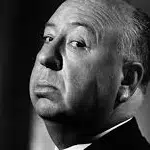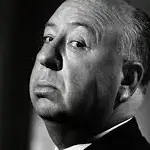After watching "Nocturnal Animals," I tried to identify a central theme for the movie. Is it revenge? The film does depict a story of "gentleman's revenge, not too late even after ten years," but it goes beyond mere vengeance. Is it vanity? Characters in the film heavily adorn themselves, hiding their true selves behind a facade of tranquility and maintaining false relationships, similar to the controversial yet stunning opening scene. Or perhaps betrayal? The open-ended conclusion makes us question the depths of human hearts, revealing who is the weaker one in love. The film raises many thought-provoking questions, and Tom Ford's ambitions become clear in the end.
In his second film, Tom Ford departs from the serene and melodious tone of "A Single Man" to create a dark thriller within a thriller. Right from the start, Ford confidently displays his fashion expertise. It's hard to imagine how a group of overweight nude women could be portrayed as beautiful, but Ford uses clever techniques. He applies lipstick, adds tassels, slows down the footage, pairs it with classical music, and has them dance amidst gold dust and colorful ribbons, transforming extreme ugliness into stunning beauty. Initially intending to satirize the indulgence and greed of contemporary Americans with this scene, Ford found the overweight women unexpectedly free-spirited and adorable, turning it into a visually striking yet humorous opening sequence. This scene may evoke memories of similarly wickedly delightful scenes from "Neon Demon," but Ford's ambition goes beyond nightclubs or lighting stores, aiming for a higher-end visual impact. Years later, this scene will likely still be a topic of discussion among film critics.

Tom Ford once said, "I don't want to compare myself to Hitchcock, but he also spent weeks designing hairstyles, makeup, and costumes for his protagonists. This was important to him because these details conveyed the character traits of the protagonists to the audience." As a darling of fashion and a gay director, Ford's understanding of aesthetics adds much color to the film, much like "A Single Man," establishing his style. Many shots in the film are breathtaking, from Susan's company's spacious staircase to the voluptuous nude paintings on the walls, to the prominent "Revenge" written in the corridor. Just the composition of these few elements is enough to leave the audience in awe and engage film critics in discussions for days. Along with Amy Adams' smoky makeup, Armie Hammer's suits, Michael Shannon's queer marriage, and Aaron Taylor-Johnson's derriere, Ford's aesthetic sense and dark humor are truly explosive.
Amy Adams portrays Susan, the female lead, who gazes at life with "a pair of desperate eyes, observing the loneliness of her existence." The more lavish and ostentatious Susan's life becomes, the emptier and more void her inner self appears. There was a time when Susan began to pursue vanity, gradually becoming the very person she least wanted to be: her mother. She stays awake all night, finally becoming a true nocturnal animal. Ford must have been peering into the lives of night owls like you and me, mocking us for putting on masks amidst the clinking of glasses, yet unable to escape the loneliness and despair of the late-night hours. We can only lament the value of authenticity when we are pierced in the knee by the truth: the moment Susan removes her makeup, she is surprisingly the most beautiful.

The film has three main threads: the reality is dark and cold, the memories are verdant and mottled, and the book is thrilling and terrifying. Jake Gyllenhaal plays Susan's ex-husband Edward (as well as the character Tony in the novel within the film), who returns to seek vengeance, intending to kill and drain souls. The scene on the Texas highway is too shocking, with the escalating crime accelerating heartbeats like sitting on pins and needles. And the subsequent revenge, both in and out of the book, is like a delightful emotional release. Jake Gyllenhaal's portrayal of Tony and Edward is textbook-perfect acting. It's challenging for a man who has experienced great tragedy to act without going overboard, but every twitch of Jake Gyllenhaal's eye corners is convincing. His acting skills have been remarkably stable and proficient in recent years, guaranteeing the film's quality. And Michael Shannon, who acts alongside him, has also reached a state of transcendence, becoming as vivid as Tommy Lee Jones in "No Country for Old Men." (By the way, other outstanding sheriffs this year include Jeff Bridges in "Hell or High Water"). The film's entire cast is perfectly cast, and the makeup effects are commendable. The younger version of Jake Gyllenhaal is so fresh that it evokes memories of "Donnie Darko" from 2001.
The strengths of "Nocturnal Animals" are apparent: it's a feast of aesthetics, with an excellent atmosphere and flawless performances. However, there are also shortcomings, such as the story not being thrilling enough and some childish dialogues, which have been criticized. Nevertheless, we cannot deny the sensory and emotional impact that this film brings. Strictly speaking, the film is a drama rather than a thriller, with few truly thrilling or terrifying moments, mostly concentrated in the book's contents. The most terrifying scene is no more than a gimmick akin to "Death Tape" ("Ring"). This aligns with the tone of the source, "Tony and Susan," from 1993: how to make the audience empathize, such as the film's open-ended conclusion, which draws viewers into an anxious wait, and the melodious music is like a prolonged pause, leaving one pondering. Love is like a novel; those who exit midway eventually wither, while those once possessed remain potent, like vermilion on the lips, constantly yearned for. In Susan and Edward's marriage, she stubbornly molded him into a weak man. Ironically, in her second marriage, she became what she least wanted to be: her mother. Marriage is like a tug-of-war on a cliff; letting go leads the other to fall into the abyss, yet one cannot escape the haunting memories in the deep, dark night: he falls in a pool of blood, in the looping memories of your life, accusing you of murder, yet you still want to spend the rest of your life with him: "When you love someone, you have to be careful with it because you might never get it again."

Intimate relationships often find us pausing at the crossroads of emotions, pondering the unknown possibilities. In each endless night of surging waves, do you dream of waking up to your choices, feeling regretful? "Nocturnal Animals" is such a film. It shows you the extravagance of Los Angeles and the duality of relationships. It's a story of revenge, leaving one in agony and discomfort; it's also a cautionary tale, with each word like a pearl to the ears. It speaks of a past that follows like a shadow but also about weakness: whether you see the weak man Edward or Tony with bloodshot eyes seeking revenge, you will constantly reflect. This is exactly what Tom Ford intended: "I want to hunt you, make you think of yourself when you leave the theater, think of your own life."
































Share your thoughts!
Be the first to start the conversation.